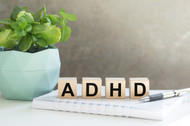Understanding Attention-Deficit / Hyperactivity Disorder (ADHD)
Posted by Abweb on 9th Oct 2023
Attention-Deficit/Hyperactivity Disorder (ADHD) is a neurodevelopmental disorder that affects individuals of all ages, but it is often misunderstood. ADHD affects around one in twenty Australians, which is over 1.2 million people.
What is ADHD?
ADHD is a complex neurological condition that impacts an individual's ability to pay attention, control impulses, and regulate their activity level. It can affect both children and adults, often persisting into adulthood.
Symptoms of ADHD:
| Type of ADHD | Common Symptoms |
| Inattentive | - Difficulty sustaining attention |
| - Frequent careless mistakes | |
| - Poor organisation & time management | |
| - Forgetfulness & losing items | |
| - Avoiding tasks requiring sustained attention | |
| Hyperactive | - Fidgeting or tapping hands/feet |
| - Inability to sit still | |
| - Excessive talking | |
| - Difficulty waiting for one's turn | |
| - Interrupting conversations | |
| Combined | - A combination of inattentive and hyperactive |
How to Spot ADHD:
Recognising ADHD can be challenging, as symptoms can vary widely. If you or someone you know exhibits several of these symptoms consistently and they interfere with daily life, consider seeking professional evaluation. A healthcare provider or psychologist can conduct a thorough assessment.
Support Services in Australia:
Australia offers a range of support services for individuals with ADHD, including:
- National Disability Insurance Scheme (NDIS): Provides financial assistance and support services for eligible individuals, including therapy and coaching.
- ADHD Support Groups: These groups, like ADHD Australia/ADHD Foundation Australia, offer resources, information, and a community of people facing similar challenges.
- Educational Support: Schools and universities often have programs to support students with ADHD, including additional learning resources.
- Psychologists and Psychiatrists: Mental health professionals can provide therapy and medication management for ADHD.
Treatment for ADHD:
Medication:
- Stimulant Medications: Often the first-line treatment for ADHD, they help improve focus and reduce impulsivity.
- Non-Stimulant Medications: These may be prescribed when stimulants are ineffective or have side effects.
Behavioral Therapies:
- Cognitive Behavioral Therapy (CBT): Helps individuals develop strategies to manage ADHD symptoms and improve organisational skills.
- Parent Training: Helps parents learn effective strategies for managing their child's behavior and supporting their development.
Lifestyle Changes:
- Diet: Encourage a balanced diet with reduced sugar and processed foods. Omega-3 fatty acids and a high-protein diet may be beneficial.
- Exercise: Regular physical activity can help with focus and self-regulation.
- Sleep: Prioritise a consistent sleep schedule.
- Organisation: Develop structured routines and use tools like planners and reminders.
Crisis Numbers
If you or someone close to you is experiencing a mental health crisis, you can call:
- Crisis Care Helpline – Information and counselling service for people in crisis needing urgent help 1800 199 008
- Lifeline – 13 11 14 with text and online chat via their website - lifeline.org.au
- Beyond Blue – Information on a wide variety of mental health problems for sufferers, carers and professionals 1300 224 636
- Family Helpline – Counselling and information service for families with relationship difficulties 1800 643 000
- Ruralink: 1800 552 002
Conclusion
ADHD is a complex condition that can have a significant impact on an individual's life, but with the right support and treatment, individuals with ADHD can thrive. Australia offers a range of support services and treatment options to help individuals manage their symptoms and lead fulfilling lives. If you suspect you or someone you know has ADHD, seek professional assessment and support to begin the journey toward effective management and well-being.
Reference - https://www.adhdaustralia.org.au/about-adhd


